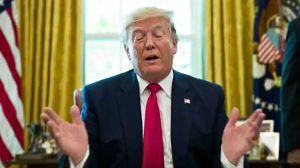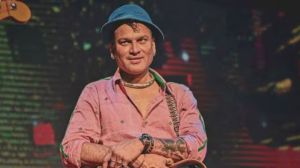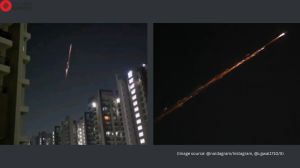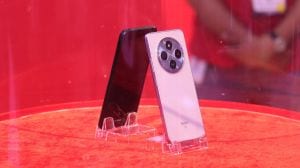PM will leave for US on Sept 5
NEW DELHI, JULY 13: From Pokharan to Washington is a long journey, but India has clearly been determined to make it. Prime Minister A.B. V...

NEW DELHI, JULY 13: From Pokharan to Washington is a long journey, but India has clearly been determined to make it. Prime Minister A.B. Vajpayee will now undertake a 12-day trip to the US in September — which includes a seven-day official state visit — that will underline not only New Delhi’s growing intimacy with the lone superpower, but also Washington’s increasing clout in this country.
Significantly, Vajpayee goes to Washington even though the US, two years after the nuclear tests, has still not lifted sanctions either on high technology or dual use items. The 204-strong Entities List, referring to companies to which US exports are banned, has been only been reduced by 50-odd items to 154 items.
Principal Secretary and National Security Advisor Brajesh Mishra will be going to Washington in the third week of July to meet his counterpart, US National Security Advisor Sandy Berger and finalise the agenda for the PM’s trip in September.
Vajpayee and party will leave India on September 5, reaching New York the next day. He will participate in the inauguration of the special three-day session of the UN General Assembly (UNGA), dubbed the `Millennium Summit,’ which begins on September 6. India’s turn to speak comes two days later, after which the PM stays on for another two days in New York.
On September 11 he flies to San Fransisco and the adjoining Silicon Valley area to meet representatives of the highly successful Indian community who have made their mark at the cutting edge of information technology.
On his return to Washington on September 14 and over the next three days, the PM will address the US Congress, hold summit-level meetings as well as be hosted at a banquet by President Clinton on September 17.
No agreements are likely to be signed during the week-long visit, which is why Vajpayee’s address at the US Congress becomes a major highlight. Former PM P.V. Narasimha Rao, during his own visit in 1994 had also addressed the US Congress — and on behalf of India, co-sponsored a resolution of the CTBT with the US.
Whether or not New Delhi will sign the Treaty before the US trip — whether or not history repeats itself with minor variations — remains a debatable question. Washington is extremely keen that it does and even if the government is similarly inclined, it remains publicly committed to a domestic consensus on the issue.
Nevertheless, officials say that a state visit to Washington at the time of the UNGA is a “highly unusual gesture” being shown by the US to India and indicates the growing commonalities between the world’s largest and oldest democracies.
They argue that the length of Vajpayee’s state visit to the US is also not exceptional or too long. That Chinese President Jiang Zemin was there for 10 days in 1998 and that Clinton himself was in India for a full five.
Photos




- 01
- 02
- 03
- 04
- 05



























